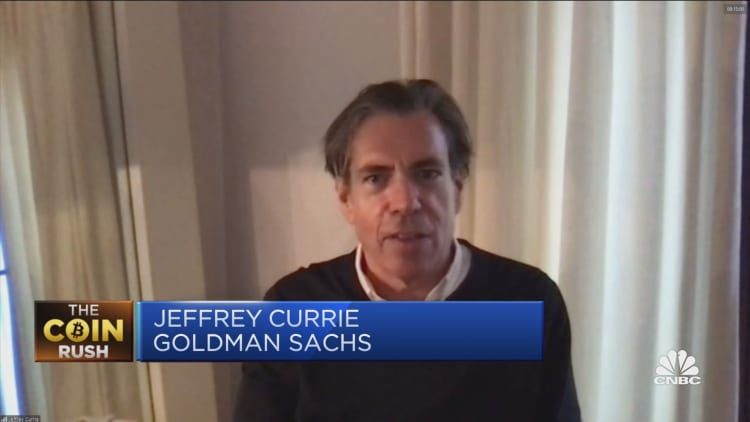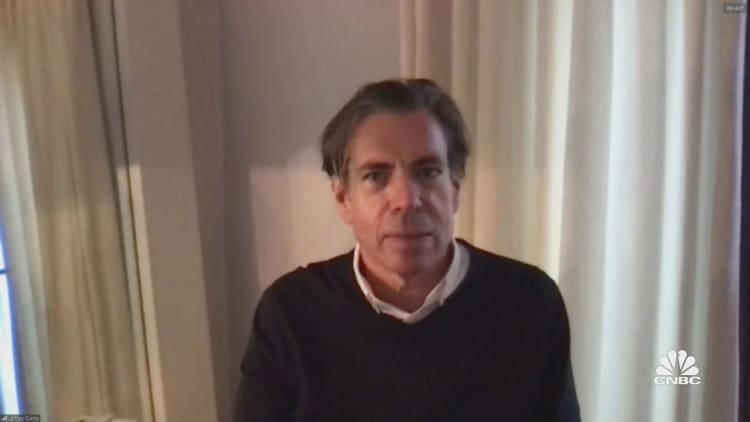
Bitcoin is showing signs of maturity but the level of institutional investment in the nascent market is still very small, according to Goldman Sachs' Jeff Currie.
The investment bank's head of commodities research said that more money from the financial world would need to flow into bitcoin in order for it to stabilize. Bitcoin and other cryptocurrencies saw a brutal sell-off on Monday that wiped off as much as $200 billion from the market value of all digital coins combined in just 24 hours.
That came after a remarkable surge for bitcoin in the last few months, with the world's most valuable virtual currency hitting a record high near $42,000 last week. Bitcoin is still up roughly 15% since the start of the year, trading 4% higher at a price of $33,873 as of 10:30 a.m. ET on Tuesday. Ether, the second-largest digital currency, was up 5%, trading at $1,058.

"I think the market is beginning to become more mature," Currie told CNBC's Steve Sedgwick in an interview Monday. "I think in any nascent market you get that volatility and those risks that are associated with it."
"The key to creating some type of stability in the market is to see an increase in the participation of institutional investors and right now they're small," he said, adding that, of the more than $600 billion invested in bitcoin right now, "roughly 1% of it is institutional money."
Investors increasingly view bitcoin as a store of value similar to gold, amid worries that unprecedented economic stimulus in the face of the coronavirus pandemic will devalue major sovereign currencies like the dollar.
Last year saw the emergence of well-known Wall Street investors like Paul Tudor Jones and Stanley Druckenmiller betting on bitcoin. Some asset managers have also allocated a small portion of their portfolios to the cryptocurrency, seeking to get some exposure to its wild gains.
Strategists at JPMorgan have said bitcoin could surge as high as $146,000 in the long term as it competes with gold as a safe-haven asset. They also noted, however, that bitcoin would have to become substantially less volatile to reach this price.
Digital currencies are notoriously volatile. The last time bitcoin had a rally similar to this was in 2017, when it soared close to $20,000 a coin before crashing as low as $3,122 the following year. Skeptics, such as stockbroker Peter Schiff and economist Nouriel Roubini, view bitcoin as a speculative asset and a market bubble likely to burst.
A big question among investors has been how to value bitcoin. Bitcoin isn't like a stock, which has traditional metrics for figuring out whether it is overpriced or undervalued. The cryptocurrency has a market value of more than $600 billion, and this is calculated by multiplying the price by the total number of coins in circulation.
"That can give you some long-run equilibrium," Currie said. But he added that the level of volatility and uncertainty in the market "makes it very difficult to forecast it."


